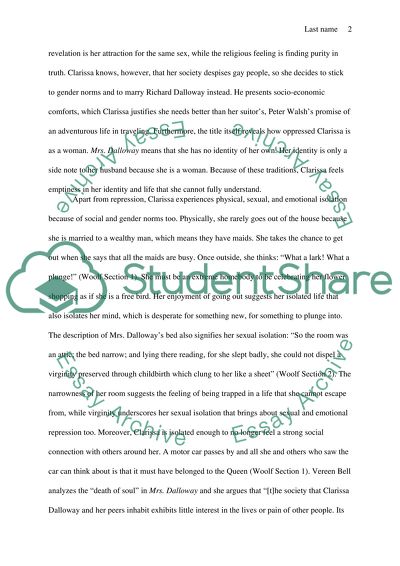Cite this document
(“Mrs Dalloway Essay Example | Topics and Well Written Essays - 1250 words”, n.d.)
Retrieved from https://studentshare.org/english/1631044-mrs-dalloway
Retrieved from https://studentshare.org/english/1631044-mrs-dalloway
(Mrs Dalloway Essay Example | Topics and Well Written Essays - 1250 Words)
https://studentshare.org/english/1631044-mrs-dalloway.
https://studentshare.org/english/1631044-mrs-dalloway.
“Mrs Dalloway Essay Example | Topics and Well Written Essays - 1250 Words”, n.d. https://studentshare.org/english/1631044-mrs-dalloway.


